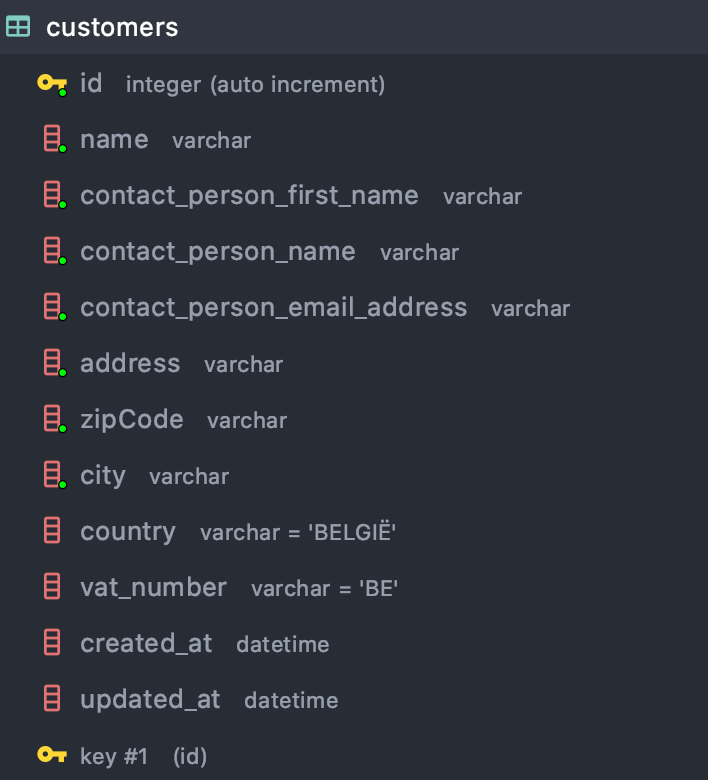I'm trying to set a default value to a laravel migration. I'm using SQLite.
When I try to insert a record with the field where a default value is assigned to, an error returns: SQL error or missing database (table customers has no column named country)
This is the migrationscript:
php
Schema::create('customers', function (Blueprint $table) {
$table->id();
$table->string('name');
$table->string('contact_person_first_name');
$table->string('contact_person_name');
$table->string('contact_person_email_address');
$table->string('address');
$table->string('zipCode');
$table->string('city');
$table->string('country')->default("BELGIË");
$table->string('vat_number')->default("BE");
$table->timestamps();
The controller:
* Store a newly created resource in storage.
*
* @param CreateCustomerRequest $request
* @return \Illuminate\Http\RedirectResponse
*/
public function store(CreateCustomerRequest $request)
{
Customer::create($request->validated());
return response()->redirectTo('/customers');
}
The request:
/**
* Get the validation rules that apply to the request.
*
* @return array
*/
public function rules()
{
return [
'name' => 'required|string|min:2|max:255',
'contact_person_first_name' => 'required|string|min:2|max:255',
'contact_person_name' => 'required|string|min:2|max:255',
'contact_person_email_address' => 'required|email',
'address' => 'required|string|min:2|max:255',
'zipCode' => 'required|string|min:4|max:10',
'city' => 'required|string|min:2|max:255',
'country' => 'nullable|string|min:2|max:255',
'vat_number' => 'nullable|min:12|max:12'
];
}
The sql script I want to execute:



